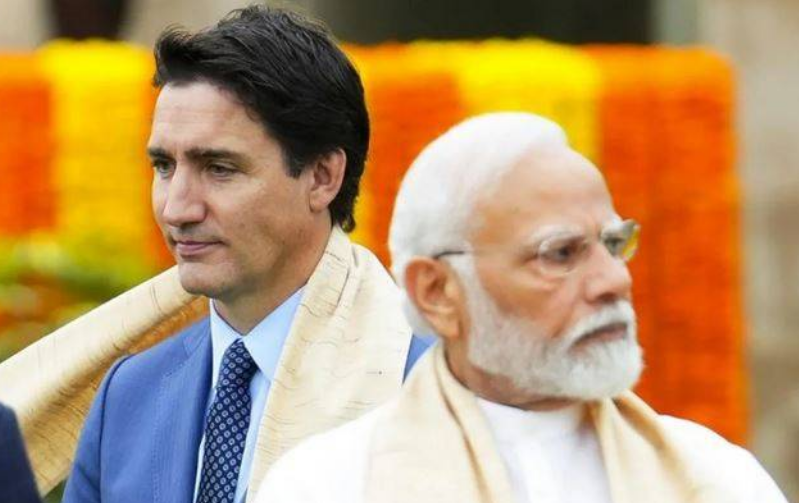Toronto /New Delhi (Web Desk): India and Canada have expelled their top envoys along with other diplomats in an escalating dispute over assassination of a Sikh separatist on Canadian soil in June 2023 and other allegations.
On Monday, Canada said it has identified India’s top diplomat in the country as a person of interest in the assassination of a Sikh activist there and expelled him and five other diplomats.
Prime Minister Justin Trudeau said the Indian high commissioner and the other individuals were being expelled from Canada, as the country's foreign minister announced that investigators had found evidence of an intensifying effort by Indian government operatives against its people.
“We will never tolerate the involvement of a foreign government threatening and killing Canadian citizens on Canadian soil," Trudeau said. He alleged that diplomats were collecting information about Canadians and passing it on to organized crime to attack Canadians, and said “India has made a monumental mistake."
On the other hand, India has rejected the accusations as absurd.
India's foreign ministry in turn said that he acting high commissioner of Canada as well as five other diplomats were ordered to leave by the end of Saturday.
According to Trudeau, there were solid claims made last year that the Indian government was involved in the murder of Sikh activist Hardeep Singh Nijjar in Canada.
Canada's foreign minister, Mélanie Joly, said the Royal Canadian Mounted Police had gathered “ample, clear and concrete evidence which identified six individuals as persons of interest in the Nijjar case.”
She said India was asked to waive diplomatic and consular immunity and cooperate in the investigation but refused. She asked that India's government support the ongoing investigation “as it remains in both our countries’ interest to get to the bottom of this.”
She claimed that India was requested to participate with the probe and waive its diplomatic and consular immunity, but they declined. Since "getting to the bottom of this is still in the interest of both of our countries," she requested that the Indian government support the current probe.
Mélanie Joly noted that violence “actually increased” following the allegations a year ago.
As per RCMP Mike Duheme, there is information that purports to link Indian government operatives to other killings and violent crimes in Canada.
“The team has learned a significant amount of information about the breadth and depth of criminal activity orchestrated by agents of the government of India, and consequential threats to the safety and security of Canadians and individuals living in Canada,” he said.
Duheme declined to provide specifics, citing ongoing investigations, but he said that said there have been more than a dozen credible and immediate threats that have prompted police to warn members of the South Asian community, particularly the pro-Khalistan, or Sikh independence, movement. He claimed that attempts to speak with law enforcement in India had failed.
It is pertinent to mention that Nijjar, 45, was fatally shot in his pickup truck after he left the Sikh temple he led in Surrey, British Columbia.
He was a Canadian citizen of Indian descent, the owner of a plumbing company, and a leading figure in the dwindling remnants of the once robust Sikh homeland movement.
Four Indian nationals living in Canada were charged with Niijar's murder.
India designated Nijjar a terrorist in 2020, and at the time of his death had been seeking his arrest for alleged involvement in an attack on a Hindu priest.
India has repeatedly criticized Trudeau's government for being soft on supporters of the Khalistan movement who live in Canada. The Khalistan movement is banned in India but has support among the Sikh diaspora, particularly in Canada.
India has been asking countries like Canada, Australia and the UK to take legal action against Sikh activists. India has particularly raised these concerns with Canada, where Sikhs make up nearly 2% of the country’s population.
In response to Canada’s earlier allegations, India told Canada last year to remove 41 of its 62 diplomats in the country. Relations between the countries have been frosty since then.
The Indian foreign ministry said Monday that “India reserves the right to take further steps in response to the Trudeau government’s support for extremism, violence and separatism against India.”


